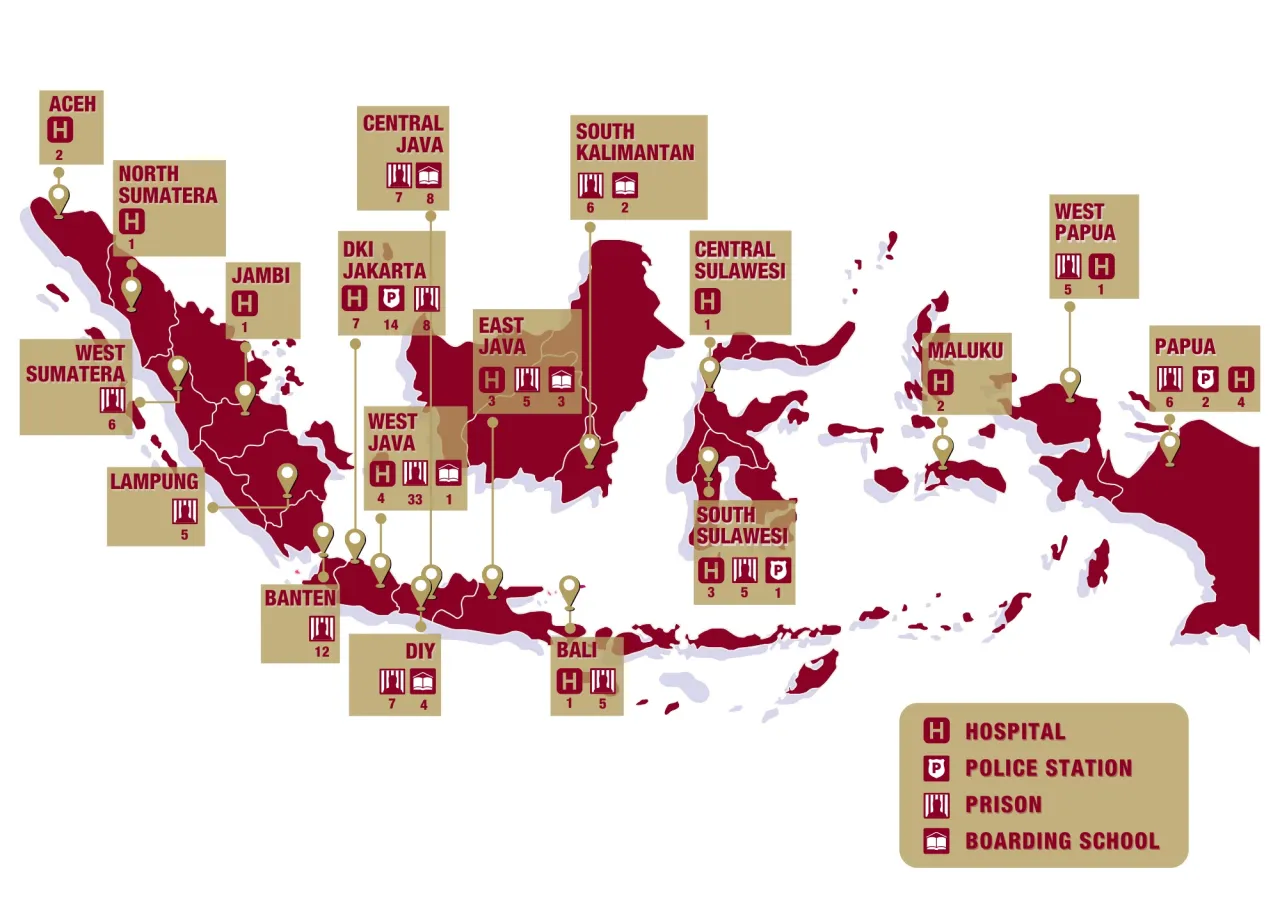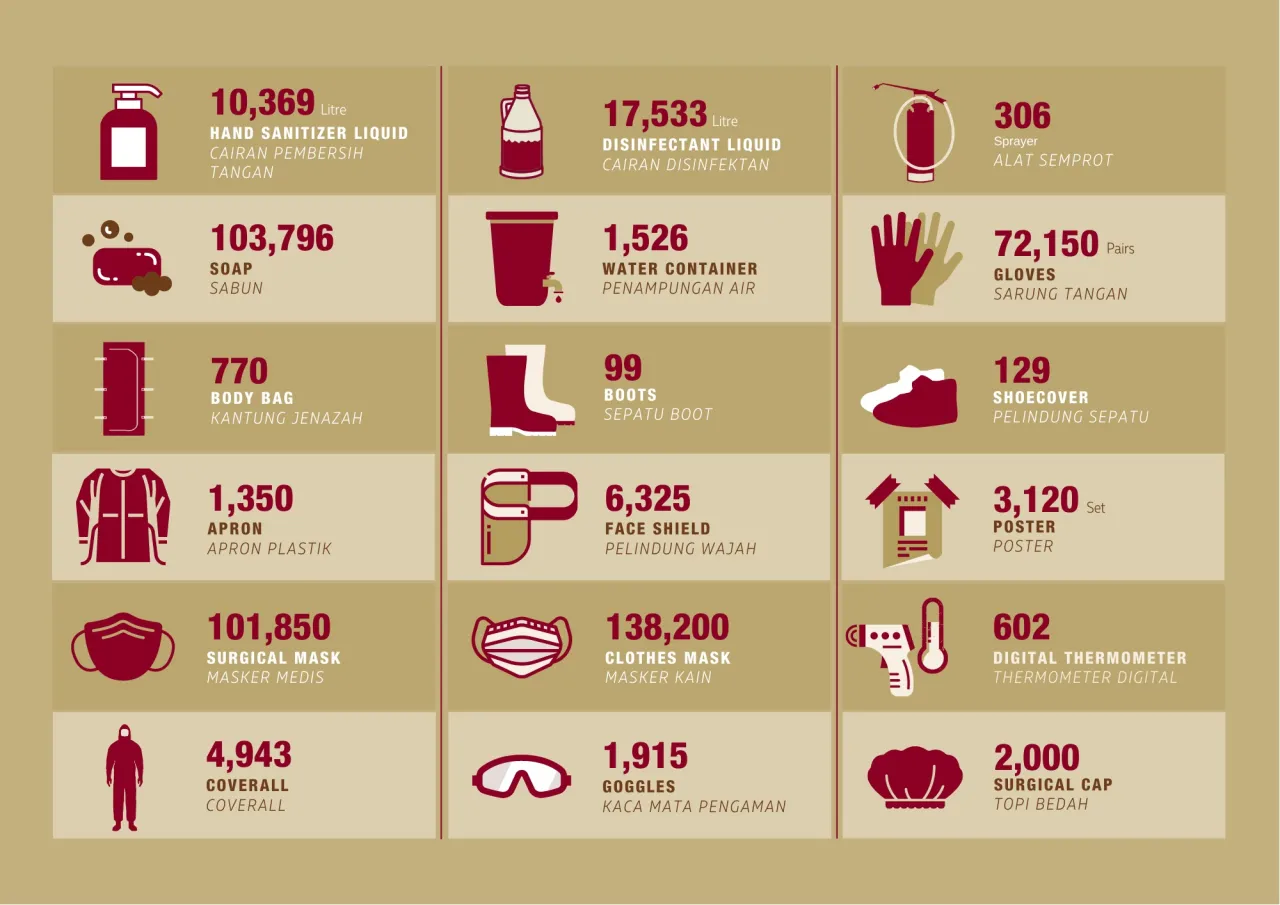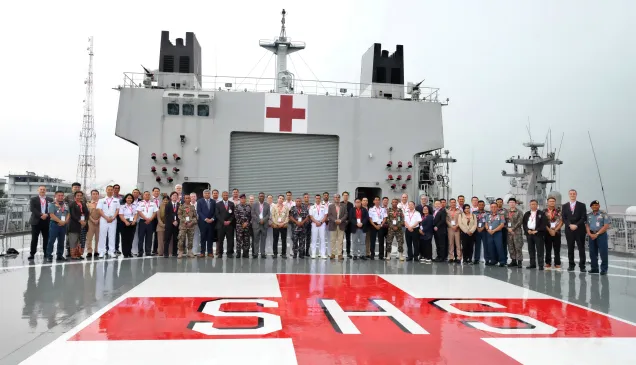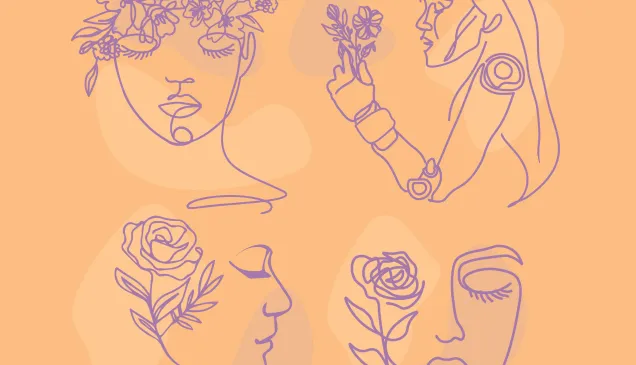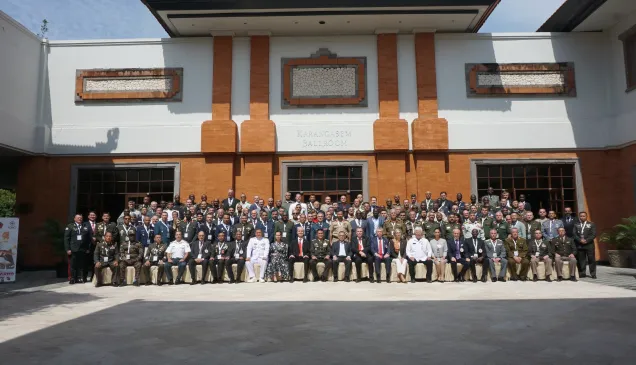Indonesia: Overview of 2020 activities

2020 was a challenging year that forced everyone to change and adapt, including the ICRC Regional Delegation for Indonesia and Timor-Leste. More than half of our budget was reallocated for COVID-19 response to reach prisons, hospitals, boarding schools, volunteers as well as others, in different locations of Indonesia. Some of our regular programs were still performed, but by pivoting our approaches to adjust to the "new normal" era.
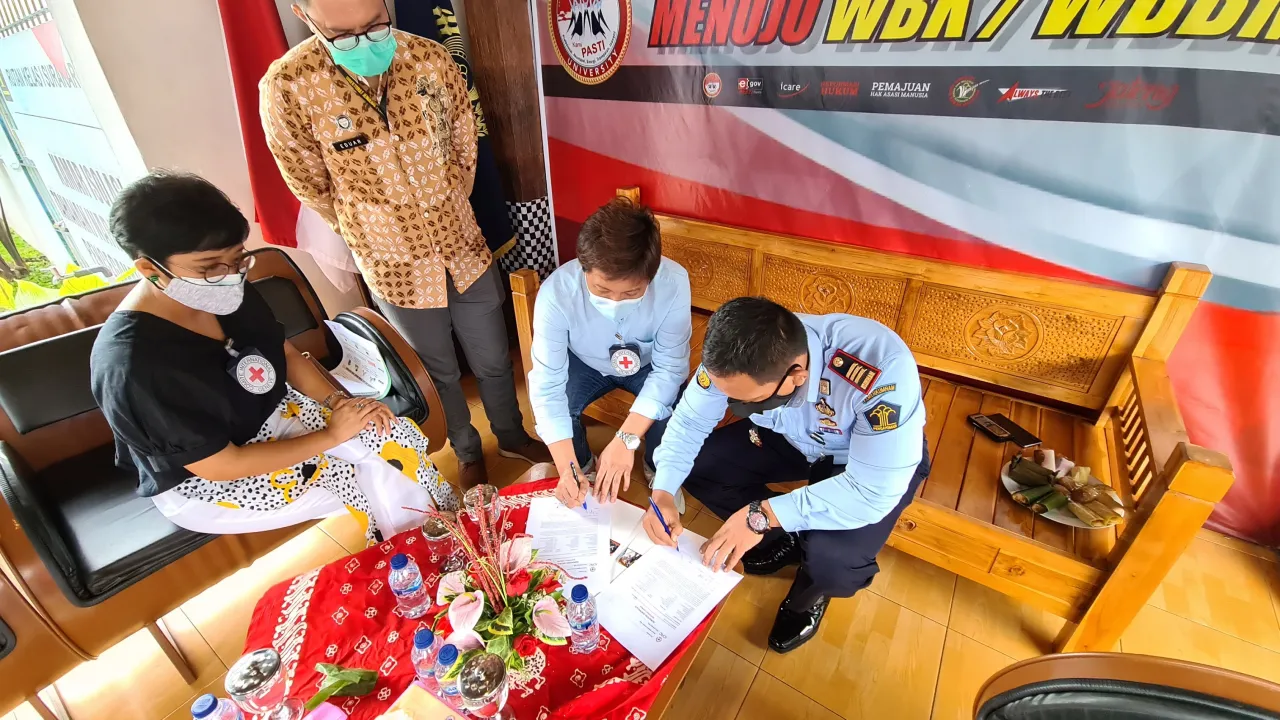
Hygiene and protection kits were distributed to 113 prisons in 13 provinces in major islands in Indonesia
1. Preventive responses in places of detention
Hygiene and protection kits were distributed to 113 prisons in 13 provinces in major islands in Indonesia including Sumatera, Java, Kalimantan, Sulawesi, Bali and Papua, and received by approximately 87,000 people (both staff and detainees).
Financial support from the Korea International Cooperation Agency (KOICA) enabled the ICRC to further expand its program and technical support to more prisons than it was initially planned.
2. Partnership with the Indonesian Red Cross (PMI)
Management of the dead
A total of 142,000 protective materials (masks, gloves, coveralls, appropriate body bags), technical support and recommendations on the Management of the Dead (MotD) were provided for PMI staff and volunteers. ICRC-PMI workshops were organized in Bandung, Bogor, DIY and Bali to enhance the capacity of volunteers to handle dead body related to COVID-19.

Health response and ambulance service
Supports on the modification of ambulances/hearse to transfer patients and corpse with infectious diseases were also given to the PMI. To be better prepared and equipped for COVID-19 response and proper PPE and financial assistance to the staff and volunteers was also provided for the first 3 months of the crisis.

Migrants
Responding to the arrival of Moslems from Rakhine State (Myanmar) in Lhokseumawe Aceh, the ICRC distributed COVID-19 kit and hygiene kit to volunteers and migrants. Reestablishment of family link through phone calls was also provided to help the migrants to contact and inform their loved ones of their whereabouts. Psychosocial supports for the minors was another aspect of the support provided.

3. Boarding schools
To contribute to the needs of preventing the spread of COVID-19 in boarding schools, where implementing some of the COVID-19 protocols such as keeping physical distance is challenging, hygiene kits were distributed to 36 religious boarding schools (Pesantren, seminary, Buddhist school) in the province of East Java, Central Java, West Java, Yogyakarta and South Sulawesi.
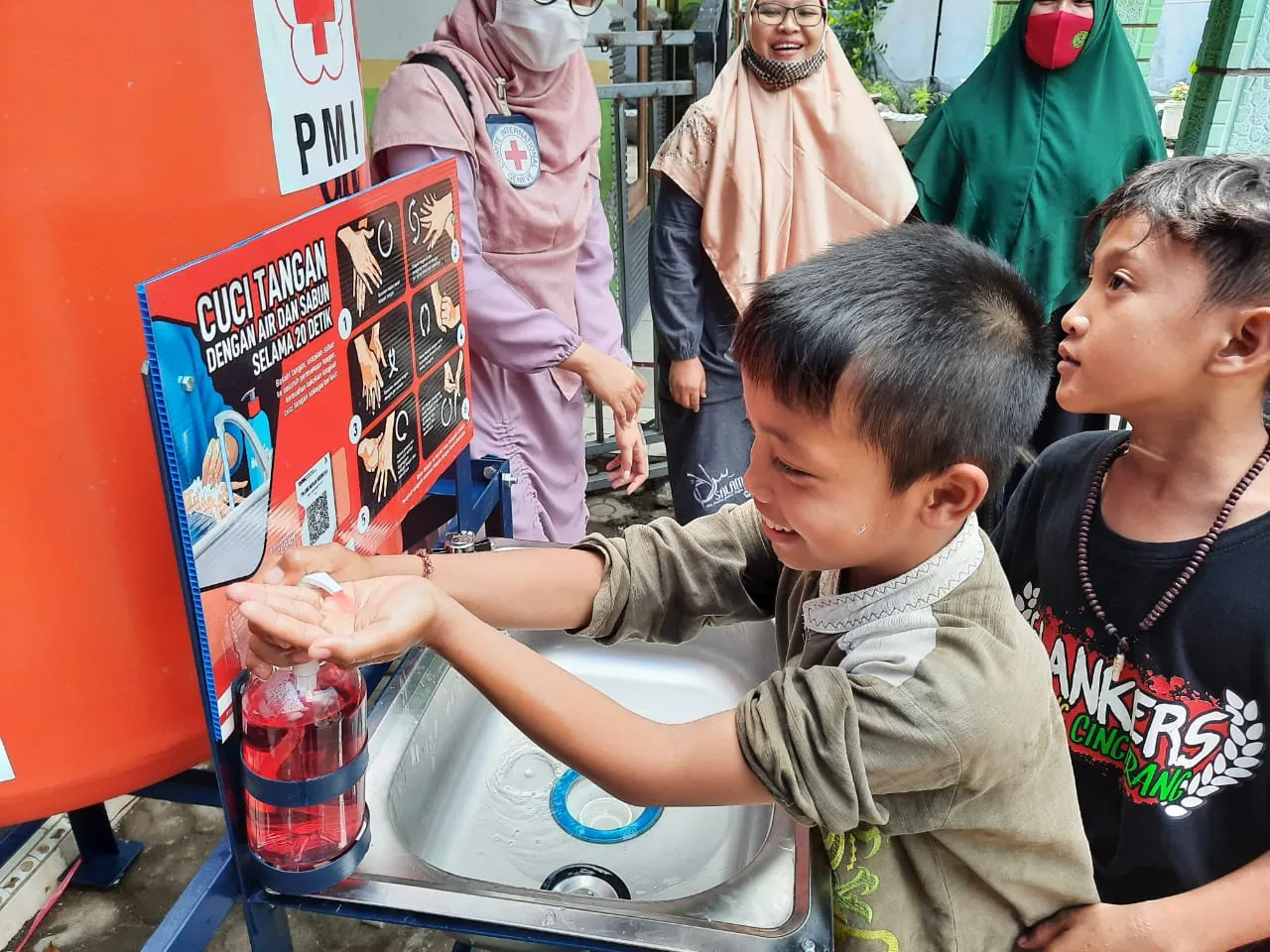
ICRC contributes to the needs of preventing the spread of COVID-19 in boarding schools
4. Outreach to other organizations and civil society
The delegation works with major religious organizations and civil society organizations to provide accurate health and hygiene information to religious leaders, so they may disseminate this to their communities.
A 2-days workshop with high-level speakers on managing dead body during the pandemic was organized in partnership with Humanitarian Forum Indonesia (HFI) and attended by participants from all over the country. Radio talk shows were also organized in three radio stations in Jakarta, Makassar and Padang to convey key messages on COVID-19.
5. Other support
The delegation collaborated with the Indonesian COVID-19 Response Acceleration Task Force and different institutions, including the Police and Indonesian armed forces. Personal protective, body bags and hygiene items were distributed to different institutions covering 5 military hospitals, 22 general hospitals, and 14 police stations.
6. Dissemination of IHL and Principles of Humanity
The delegation, in cooperation with relevant counterparts from the Indonesian authorities and universities, disseminates IHL for armed forces personnel, peacekeepers, policymakers, diplomats, academics, and students—some of which were conducted virtually.
In March, IHL dissemination for students also took place in the form of the 'Pictet Competition'—a global IHL role-play competition—when the ICRC, with the support of the Ministry of Foreign Affairs, welcomed more than 300 students from across the world in Denpasar to compete in applying the law into practice.
The delegation also launched a new project called "Nilai Kemanusiaan" (Principles of Humanity) which seeks to facilitate the convergences of international law, religious principles, and traditional values in Indonesia on the respect of human dignity. Discussions with religious and society leaders as well as academics to understand the relevant religious principles and traditional values on the respect of human dignity took place in Maluku, South Sulawesi, West Sumatera, and South Kalimantan.
7. Dissemination of IHL and Principles of Humanity
The ICRC has coordinated with the ASEAN and its affiliated institutions (i.e. AHA Centre) to strengthen mutual cooperation on key humanitarian agendas and thematics. Moreover, the ICRC has accelerated to establish cooperation with ASEAN member states, the ASEAN secretariat and other key actors within the ASEAN.
